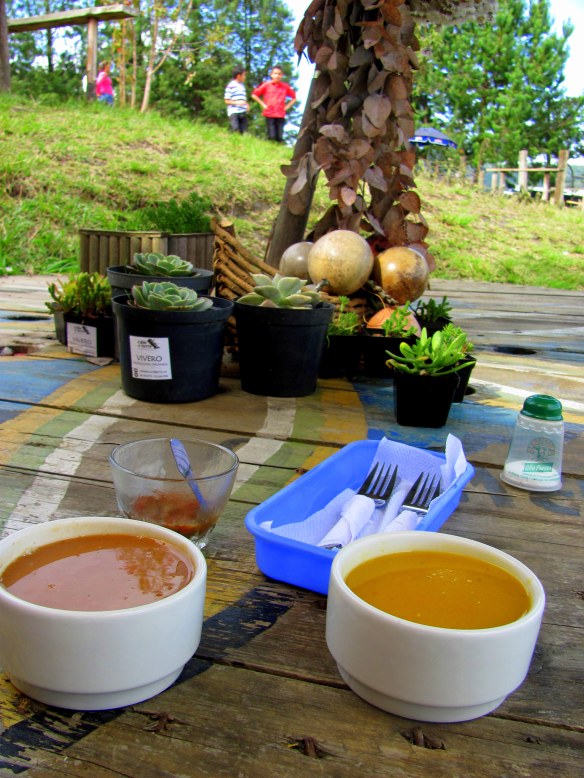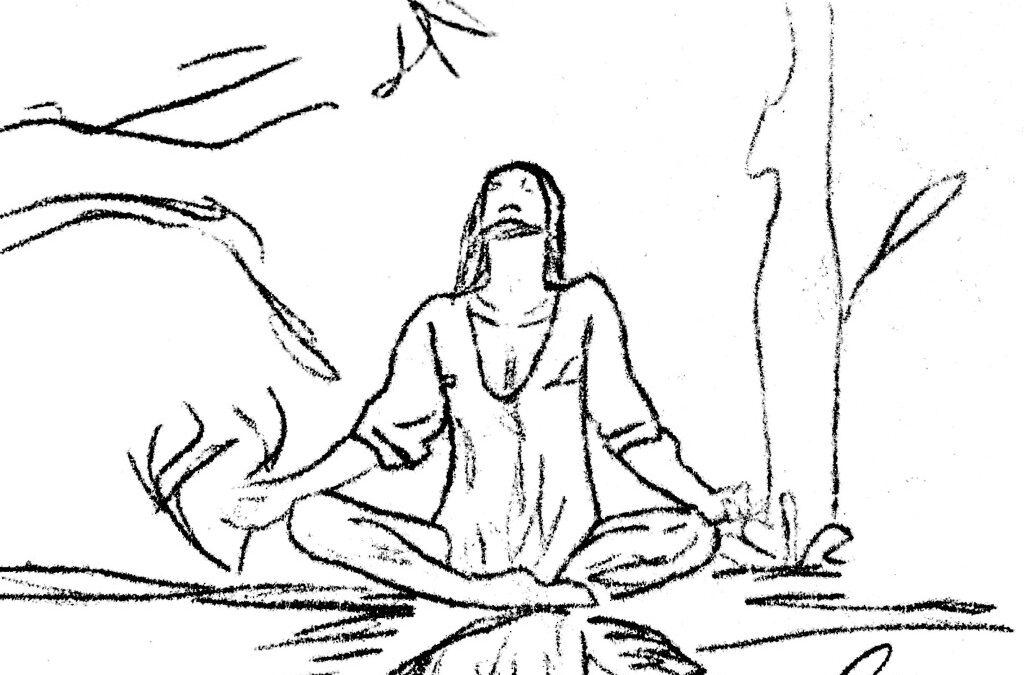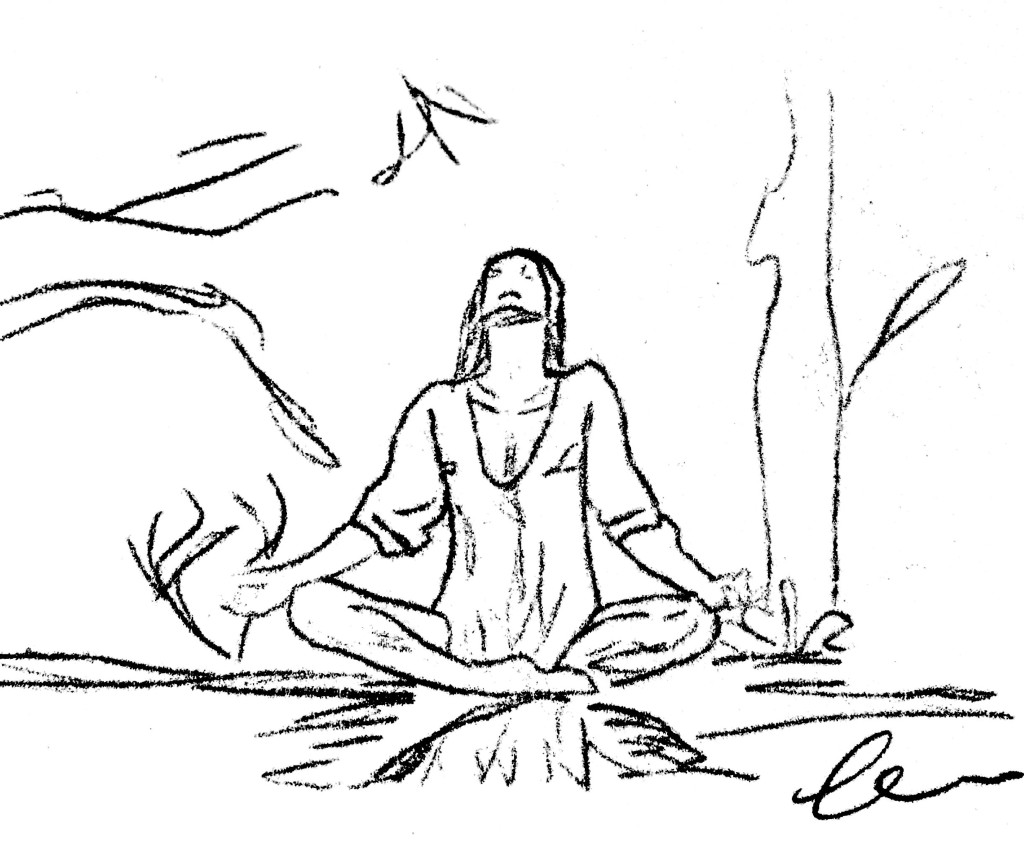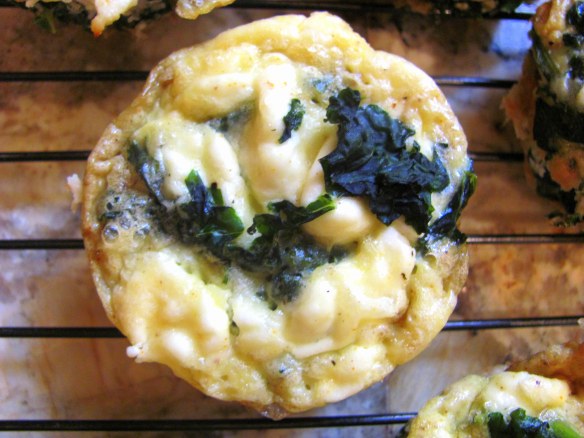
by Dr. Talia Marcheggiani, ND | Oct 22, 2013 | Colombia, Culture, South America, Travel

I have been on hiatus from this blog because I went back to Colombia for vacation. Colombia is a country in which I’ve spent a lot of time in in the past few years, since living there from 2008-2010, and disconnected completely from technology. My smartphone (poor neglected thing) lay buried under dirty laundry at the bottom of my backpack and I removed my watch for the next few weeks, relying on the kindness of neighbours to tell me what time it was, when it mattered enough to ask.
Each time I venture across the Western Hemisphere to return to Colombia, it feels like trying a favourite dish in new ways; the past 11 months of life experience bring out certain flavours that I never noticed before and that add an exquisite richness to the palate of cultural experience. The more times I go, the more it feels like home, as if the culture has nuzzled its way into a part of me and I can never consider myself simply a “Canadian” again. Here are some of the experiences I had that, I believe, can only be found in this loving South American nation.
You know you’re in Colombia when…
(more…)

by Dr. Talia Marcheggiani, ND | Oct 20, 2013 | Exercise, Fitness, Health

When I was at Queen’s University, studying for my BSc degree, I would go to the gym daily to sweat out the stress and sluggishness of classroom and library time. I would go to the gym for as long as 2 hours, which didn’t seem much at the time, when you factored in the wait time for the popular cardio machines (especially after the New Year). Then I joined the Queen’s Triathlon Team and would bike or swim for 2 hours before hopping on the treadmill for another half hour. I worked out like an Olympian, watched what I ate and yet I still felt breathless while ascending stairs and I still maintained my weight at slightly higher than it is now (these days I do 30-60 minutes of light to moderate exercise a day). What gives? The answers, my friends, is physiological adaptation and cortisol.
(more…)

by Dr. Talia Marcheggiani, ND | Sep 30, 2013 | Asian Medicine, Detoxification, Digestion, Exams, Food, Health, Mindfulness, Traditional Chinese Medicine

In Traditional Chinese Medicine, the Spleen organ can be more closely equated with the pancreas, rather than the western spleen, whose main function is simply to store blood. The TCM Spleen is responsible for digesting food and converting it into energy, much in the way the pancreas releases insulin to allow the body’s cells to absorb ingested glucose, providing the cells with energy. Unlike the pancreas, however, the TCM Spleen is also responsible for providing warmth and vitality to the body, providing energy for immune function and the mental energy to produce industrious and creativity work. The Spleen belongs to the Earth Element and its main season is late Summer and early Fall, right around the time that students dust off their backpacks and head back to school.
(more…)
by Dr. Talia Marcheggiani, ND | Sep 25, 2013 | Fertility, Health, Women's health
Imagine no longer being surprised by a menstrual period while on vacation, knowing the best time to have intercourse for those trying to conceive, and being aware of high-risk times for those trying to avoid unwanted pregnancy. For women with concerns about fertility, PMS and other menstrual symptoms, those with hormonal irregularities, those who are interested in a natural, yet effective form of birth control and those who are simply interested in learning more about their bodies and menstrual cycles, BBT Charting is an important holistic practice to adapt.
(more…)
by Dr. Talia Marcheggiani, ND | Sep 18, 2013 | Ayurvedic Medicine, Detoxification, Self-care, Skin health, Stress
I await my first real patient: a referral from a friend. I know this new patient suffers from chronic migraines, related to stress, and I am excited; I already have some ideas about what to prescribe. It’s been 9 long years since I decided that I wanted to enter into a healing profession and soon I will be face-to-face with a real human, someone who requires the skills I have so painstakingly acquired over the years through hours of book-study. I am elated. The appointment is cancelled, however, as I am attacked by a migraine headache myself, one that I used to suffer from regularly but haven’t experienced in months. The headache is all-encompassing and I am forced to go home. It’s only on reflection, months later, that I realize the irony of being forced to cancel an appointment due to being afflicted by an attack of the very condition I was to treat.
(more…)

by Dr. Talia Marcheggiani, ND | Sep 15, 2013 | Emotions, Health, Meditation, Mental Health, Mindfulness, Psychology
 Are some physical ailments “all in our heads?” The mind is a powerful organ, capable of creating reality for us. In the world of health, the mind can be a powerful healing tool, or a powerful hindrance to true cure.
Are some physical ailments “all in our heads?” The mind is a powerful organ, capable of creating reality for us. In the world of health, the mind can be a powerful healing tool, or a powerful hindrance to true cure.
As a Buddhist tenet suggests, all suffering is present in the mind: pain, itching and discomfort especially. The mind, when stressed, has the ability to produce a number of physical symptoms, pain being one of them, but also skin ailments, digestive concerns, weight gain, hypertension and virtually any other complaint take up significant residence in the mind. Is your eczema expressing an anger that you’ve been holding in? Is your inability to lose weight a need to shield yourself from the world? Our homeopathy professor holds that the our symptoms are outer expressions of an inner, emotional state and, in controlling our minds and dealing with repressed emotions, we can resolve the physical as well.
In 1955, the doctor Henry K. Beecher named this tendency of the mind the “Placebo Effect.” According to Beecher, 35% of patients got better when given a sugar pill, indicating that, when the mind believed it was being treated, it spontaneously resolved symptoms based solely on its own expectations. This effect was so pronounced that, to this day, clinical trials are all but tossed out if they are not controlled for the placebo effect by giving one group a sugar pill.
It’s unfortunate that in modern healthcare this healing power of the mind is dismissed as “placebo” and not exploited further. After all, harnessing the power of the mind is cost-effective and side effect-free. There are many ways to enhance the Placebo, or as some of my supervisors like to term it, the “Meaning Response,” such as good patient rapport, a healing intention and therapeutic setting. However, when we talk about placebo, we’re really just talking about tapping into the mind-body connection, harnessing the mind’s powerful ability to influence the physical body. Giving patients a sugar pill is only one part of it.
Seeing patients at the Robert Schad Naturopathic Clinic made it clear to me how much of an obstacle to cure mindset can be. Often times patients’ core beliefs prevent them from getting better, especially if mental and emotional issues are at the root of their physical concerns. In many cases there is an ingrained belief of benefit to being unwell, or an unconscious fear of getting better. I find that identifying this fear helps untangle some of the mental obstacles to cure and helps patients approach healing with a renewed enlightenment.
Tapping into these unconscious beliefs is difficult, however. If approached from the wrong angle, the topic can seem insulting or belittling from the patients’ perspective. There are books such as “Messages from the Body” or Louise Hay’s “Heal Your Life”, that attribute emotional afflictions to physical ones in a dictionary-like layout, however the emotions behind a complaint are individualized and therefore such mind-body exercises are best explored on an individual level.
In the book Fat is a Feminist Issue, a comprehensive self-help book for compulsive eating and negative body image, there is a useful visualization that helps individuals access the feelings and beliefs that are preventing them from getting well. This book focusses on disordered eating and weight loss, however I’ve used the same visualization for a variety of complaints, including depression, circulatory problems, chronic infections and skin issues. The visualization consists of asking the individual to observe themselves as they are and then imagine that their condition is getting worse, then better. The visual dramatization often allows the individual to access the deep-held feelings, both positive and negative, that accompany both the worsening of and the alleviation of their complaint.
To truly access the deeper-held feelings, this meditation should be performed repeatedly. Those who attempt the visualization commonly realize:
1) There are positive aspects to having the condition: the condition protects them in some way, the condition benefits them in some way.
2) There are negative aspects to recovering: There is something threatening about the person they could become or the life they could lead without being burdened by the condition. There is something frightening about moving forward.
For stubborn conditions that do not respond to treatment, or conditions that commonly relapse, it becomes clear that, unless the mental-emotional reasons for having the condition or avoiding remission are addressed, cure is impossible.
This visualization is best done lying down and relaxed. It can be done with a trusted healthcare practitioner or alone as a meditation exercise. The party scene can be substituted for another scene that may be more relevant for you and words pertaining to your specific condition can be substituted as well. The dots (…) indicate a pause in the narrative.
“Fat/Thin Fantasy” from Fat is a Feminist Issue by Susie Orbach
I’d like you to close your eyes, get as comfortable as you can, follow your breathing, in and out, in and out, and relax…
I’d like you to imagine that you are at a party…. This can be either a real party or an imaginary one… It might be a dancing party, a talking party, a small intimate party… Set the scene and take notice of your thoughts…. feelings… and body sensations… What are you wearing?… How do you feel in those clothes?…. What is your posture like?… Try and feel yourself in your body…. Now notice your behaviour at this party…. Are you an observer?… Are you actively mixing with other people?…. do you feel withdrawn?….
As you observe yourself at this party, I’d like you to imagine that (your condition is worsening)… How do you feel?… Try to be aware of your feelings…. and thoughts….observe any negative feelings about (having your condition worsened)… observe any positive feelings about (feeling this way)… what are you wearing?…. How is your body positioned?…. What is going on at the party and how are you interacting with the other people there?…. Now, imagine that (your condition) is communicating with the people at the party…. What is it saying to others?… is there a way in which it helps you to (have this condition) in this situation?… Does (having the condition) allow you to do or say certain things or act in particular ways?…
Now imagine that (your condition) is slowly vanishing, fading away and, in this visualization, you are completely healthy…. can you see yourself?…. can you feel your body (without the condition)?… notice what you are wearing…. what do your clothes say about you?… notice your body position…. you posture…. what do you see from the perspective of being completely healthy?… do you view the party, other people, with different eyes?… how do the people at the party view you?…. How do you feel?…. pay attention to any feelings that arise… positive feelings…. and negative feelings… are you sure of yourself?…. do you feel vulnerable?… are you you?…How are you getting on with the others at the party?… Are there differences in the way that you interact with others?…. Is there anything scary of unpleasant about (having this condition)?…
Now I’d like to you to imagine that you are back to the body you have now…. does the atmosphere change?… can you contact any feelings of relief about being back in your present body?… Allow yourself time to experience whatever feelings are coming up… notice your responses to other people… how you feel about yourself… watch these feelings without judgement, as an observer….
Now, look back over this entire visualization exercise…. see what new information came up for you about yourself… When you are ready, come back into the room and open your eyes…
Reference:
Orbach, Susie (1978). Fat is a Feminist Issue. Galahad Books: New York, NY.
by Dr. Talia Marcheggiani, ND | Sep 10, 2013 | Diet, Digestion, DIY, Food, Food Sensitivities, Health, Nutrition
The only beauty product you need, really, is a jar of coconut oil and a few ingredients from your kitchen. This delicious-tasting oil is great for cooking because of its high melting point, allowing it to be used in stir-frys or other foods cooked and baked at higher temperatures without oxidizing. It’s also unique in its possession of a healthy saturated fat called lauric acid and its medium chain fatty acids, known for their tendency to be used directly as fuel by the body, rather than being stored as fat. Coconut oil also boasts of antibacterial properties and has a low molecular weight, allowing it to absorb silkily into skin and hair. Here are 10 healthy uses for this oil for the inside and outside of your body.
(more…)
by Dr. Talia Marcheggiani, ND | Sep 8, 2013 | Canadian College of Naturopathic Medicine, Health, Nature Cure, Robert Schad Naturopathic Clinic, Women's health
A few years ago I was experiencing digestive issues. Not to get too graphic, but I was having bloating and that impending feeling that things weren’t 100% “alright” down there. I didn’t seek help from a holistic practitioner at first, however. The reason for this was simple, but kind of silly when I look back, wishing I knew then what I know now: I felt like my symptom, as uncomfortable as it was, wasn’t a real “symptom”. I thought that, if I sought help for something as small as “bloating” (which I’d been told was normal by every other medical professional – common, perhaps, but not normal), I’d be labelled a complainer, a hypochondriac.
Now, of course, I know that not only is the onset of a “little” symptom the perfect time to go to a naturopathic doctor – it’s the first indication that we’ve strayed from balance – any kind of suffering is a legitimate reason to seek medical care. Got bloating? See a naturopathic doctor. Here are some more things a naturopathic doctor (or RSNC intern) can do for you:
(more…)

by Dr. Talia Marcheggiani, ND | Sep 3, 2013 | Cooking, Education, Food, Gluten Free, Health, Nutrition, Recipes, Student

Welcome back to school, everyone! Thankfully, being a 4th year intern, my days of sitting in lecture are over with for now. For the rest of you tireless scholars, I find that long days in class are made more bearable when I have something yummy and nutritious to nosh on. Just in case you’re bored of the old soup, sandwich, salad lunch rut, here is a new take on portable nutrition. This recipe is low-carb, high in protein and contains a serving of leafy greens. Kale is one of nature’s most perfect foods. Chock full of vitamins and minerals, this versatile leafy green can be added to anything that you used to add spinach or lettuce to: smoothies, salads, soups, sauces, steamed or sauteed on the side, or in this wonderful frittata recipe!
(more…)
by Dr. Talia Marcheggiani, ND | Aug 29, 2013 | Colombia, Community, Food, Human Rights, Nutrition, Protests, South America
Globalization has selected its next victim. In July, 2012, Colombia signed a free trade agreement with the United States. Fuelled by the desire to “develop” economically, i.e.: have access to the amenities and material goods of the first world, the initial reaction was quite positive. Citizens flocked to multinational brands like GAP and many excitedly awaited the promise of the arrival of Starbucks. On August 1, of this year, the free trade agreement with the European Union also came into effect.
Since signing the free trade agreement, imports from the US to Colombia have increased by about 70%, according to Counterpunch, “In 2011, Colombia imported 5,000 tons of rice from the US. In the year after the fta came in, 98,000 tons were imported.”
(more…)










